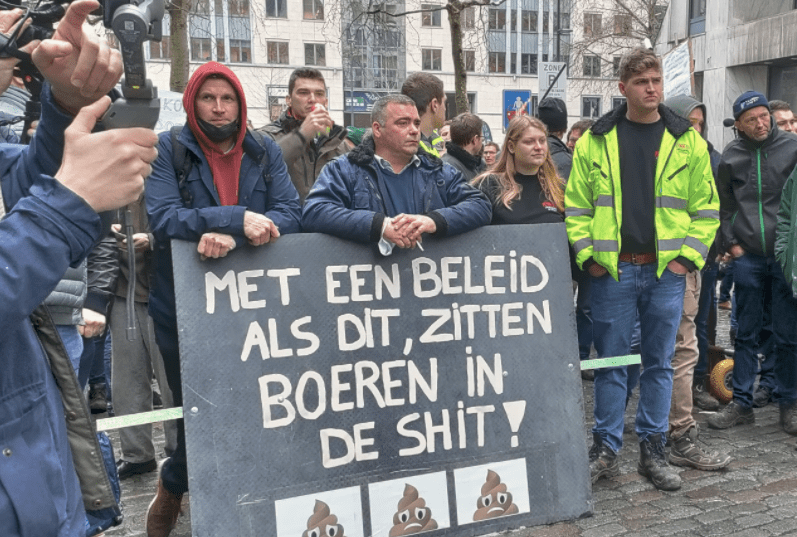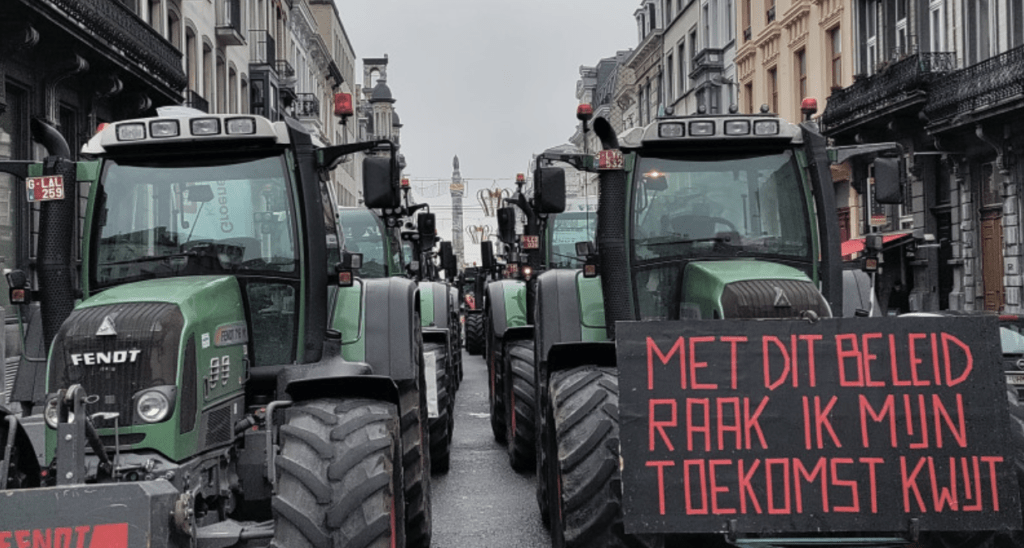On Wednesday, 200 tractors driven by members of the General Farmers' Syndicate (ABS) came to Brussels as part of a demonstration demanding support for the struggling pork sector.
The demonstration was calm and the traffic disruption was limited, according to the Flemish infocentre for agriculture and horticulture. Letters were distributed to members of parliament and journalists who came to the protest.
The pork sector has always been sensitive to price fluctuations but is now in crisis as sales were lost due to African swine flu and feed prices spiralled.
Van overal in alle vroegte de tractor op naar deCommissie landbouw van het Vlaams Parlement en tot bij landbouwminister @crevits . +150 tractoren hartje politiek Brussel en nog veel meer boeren met de trein. Allen schreeuwen ze om Coronasteun zoals elders in Europa gegeven wordt. pic.twitter.com/V3UIH8U12w
— Hendrik Vandamme (@HendrikABS) December 15, 2021
“The piglets we sell earn us €4,000, but the bill from the feed manufacturer is €8,000,” explained farmer Heidi Sagaert.
Raising pigs: a pricey business
The Flemish government created a support package of €16 million, but most of that amount has gone towards promotion and labelling campaigns, as well as Rendac – the organisation that collects carcasses and animal residues on behalf of the government for processing and destruction.
Direct support for pig farmers is limited to €5.75 million, which goes to around 200 young farmers and 800 others who have made sustainability investments.
Related News
- Flemish pig farmers will ride their tractors to Brussels on Wednesday
- Embargo on Belgian pork lifted in 14 out of 30 countries
- Amid backlash against slaughterhouses, a full-photo tour for nonprofit
“Direct aid is available to barely a third of pig farmers and varies from €2,500 to €7,500. For that amount you cannot buy half a week's worth of feed,” said Hendrik Vandamme, president of the union that represents the Flemish pork industry.
He says the Flemish government will have to come up with at least €100 million, pointing to efforts made for the sectors in Wallonia and in The Netherlands.
“In Wallonia, farmers received a financial injection of €526 per sow. In the Netherlands, there is an allowance for fixed costs of up to €225,000 per farm.”

Farmers from the pig sector protest in Brussels. Photo from VILT.
Regarding the problems faced by farmers, agriculture minister Hilde Crevits said: “I know that we will need long-term measures. We also need to work in a structural way. There must be more respect from consumers and retailers.”
Friday is the last council of ministers before the Christmas recess, meaning that if the Flemish government intends to provide the asked-for support, a decision will have to be taken then.

